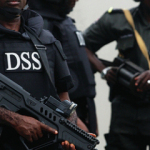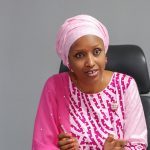Eritrea: A Decayed Revolution, By Owei Lakemfa
Featured Contributors/Columnists, Latest Headlines Sunday, January 17th, 2016
BALTIMORE, MD (AFRICAN EXAMINER) – Eritrea is a relatively unknown African country. Little news filters out. In October 2012, I wanted to pay with a hundred dollar bill in a Washington supermarket, and the cashier declined. He asked me to pay with a smaller denomination, which I did not have. Noticing his features, I asked if he was of African decent. He asked if I knew Ethiopia. He said his country is near Ethiopia. I asked, Eritrea? “Yes” “So why didn’t you simply say you are from Eritrea?” “I tell people, and they never seem to have heard of such a country.”
I assured him that his country is on the African map with capital in Asmara, the major port in Massawa and Isaias Afewerki as President. He seemed shocked. Excitedly, he called his supervisor and co-workers who all happen to be Eritreans to see somebody who knows their country.
The following year, I stayed in a hotel in Lusaka, Zambia. Having a few extra days to kill, I decided to ask for a discount. I was told to see the manager. Given his features, I asked if he was Ethiopian, Eritrean or Somalian. His face lit up. “You know Eritrea?” “Of course” We discussed about his country and he said even in Zambia, very few people had heard about his country.
If the country is so little known today, imagine the situation in 1980 when it was part of Ethiopia. At that time, there was a hot debate amongst radical elements and intellectuals in Nigeria over whether to support the indivisibility of revolutionary Ethiopia under Colonel Mengistu Haile Mariam or the bloody war of Eritrea to secede. The Eritrean struggle was led by the Eritrean Peoples Liberation Front (EPLF) a group of left wingers who had clipped the wings of the rival Eritrean Liberation Front (ELF) a conservative group supported by the Arab world.
I was then a student in the University of Ife, UNIFE (now Obafemi Awolowo University) and there were Ethiopian and Eritrean students on campus each explaining their own side and wanting support from Nigerians. Internationally, Ethiopia was on solid ground; Africa wanted post-colonial states to remain intact. Also, Ethiopia hosted the Organisation of African Unity ( now AU) which stood for African unity. Additionally, it had succeeded in portraying the Eritrean struggle as an attempted ARABAZATION of the Red sea.
Also, Ethiopia was one of the most consistent supporters of the liberation struggles in the continent. To worsen the Eritrean case, the EPLF was revolutionary. This alienated it from the Arab States and the West, while the revolutionary government in Ethiopia had the backing of socialist states like the Soviet Union and Cuba.
But the Eritreans in UNIFE led by Wolde Yitzak, a professor in the Pharmacy Department argued that the Eritrean Question was a case of de-colonization as the country was an Italian colony, seized and stripped as a war booty by Britain following the defeat of Italy during the Second World War. They argued that despite a referendum in which Eritreans voted for independence, the United Nations issued Resolution 390 of 1952 federating Eritrea to Ethiopia.
That ten years later, Emperor Sellasie abolished the Eritrean parliament and annexed the country. So the issue, as far as they are concerned is one of the right of a people to self-determination in accordance with fundamental human rights. A question was, given the overthrow of feudalism in Ethiopia, why can’t they work with the new revolutionary government? The Eritreans said they tried but that the Mengistu government was no less hegemonic.
To verify the claims of both sides, there was the need to send an independent person to Ethiopia who will also go into the war zone to meet with the then rebels. Dr. Dipo Fashina of the UNIFE Philosophy Department offered to undertake the dangerous journey. During the 1981/82 academic session, he went to Sudan and crossed into the rebel held areas, and then the war front. He met the EPLF hierarchy including current president, Isaias Aferweki.
His report was that the Eritrean leaders, fighters and people he met were bright men and women; strategic and determined fighters, brilliant analysts and radical socialists. Eritrea he said, was an Africa promise, and recommended that the EPLF be supported.
A combination of factors including the Eritrean war and two civil wars, led to the collapse of the Mengistu government. In a UN-supervised referendum in 1993, 99.83 percent of Eritreans voted for independence. But the Eritrean revolution has not delivered. Eritrea was no doubt isolated during its lonely war of liberation; unfortunately, the country seems caught up in that isolationist psychology. Like China, it shut its doors to be self-sufficient before facing the rest of the world, but unlike China, it is not developing. Rather, it seems decaying and reminds me of Cambodia under the Pol Pot revolutionaries. Cuba has also faced serious isolation even by fellow Latin Americans, but it delivered to the people. That is why Cubans are ready to lay down their lives in defence of their revolution. In contrast, Eritreans are fleeing in droves as if pursued by devils. Israel alone has some forty thousand Eritrean refuges while monthly, an average three thousand Eritreans are said to be fleeing monthly, mainly to Sudan. Eritreans are also high in the number of refugees making the perilous sea journey into Europe.
I was in Asmara in 2015 and saw a society stalled in time; weary–looking people in the streets who seemed caged and resigned to fate. A major source of worry is the mandatory military service which has an entry point but not an exit one. Its 1998-2000 border war with Ethiopia over a patch of land, left some 19,000 Eritreans dead and a broke and broken country. Eritrea today, remains on a war footing with the strain of maintaining some 4,000 troops in the demilitarized zone and 120,000 on its border with Ethiopia. Unemployment is very high, wages, even of bank managers, very low. Eritrea has to recreate itself; to be revolutionary is not to be wedded to poverty and underdevelopment, it is to deliver dividends to the people.
Related Posts
Short URL: https://www.africanexaminer.com/?p=29521






















